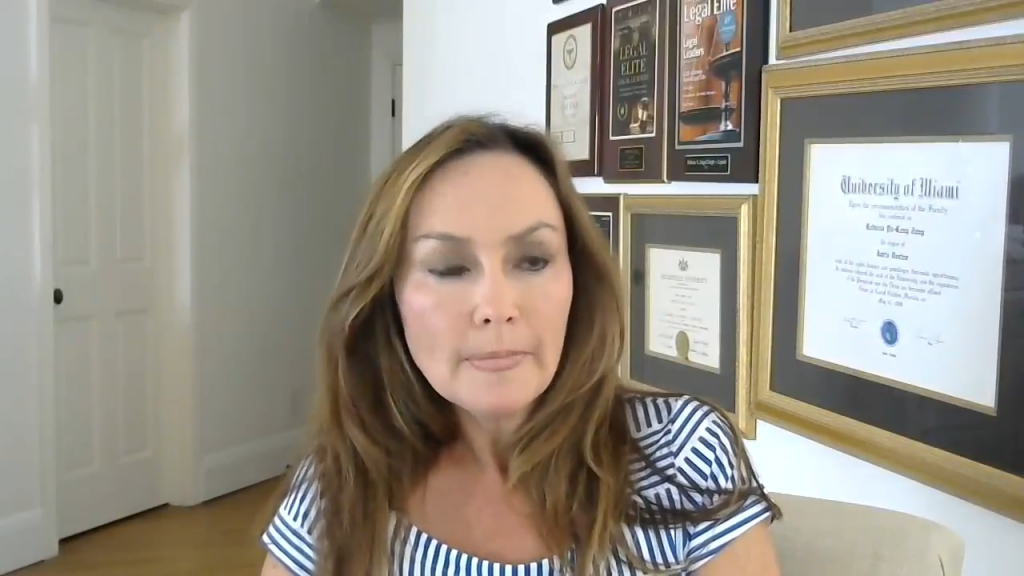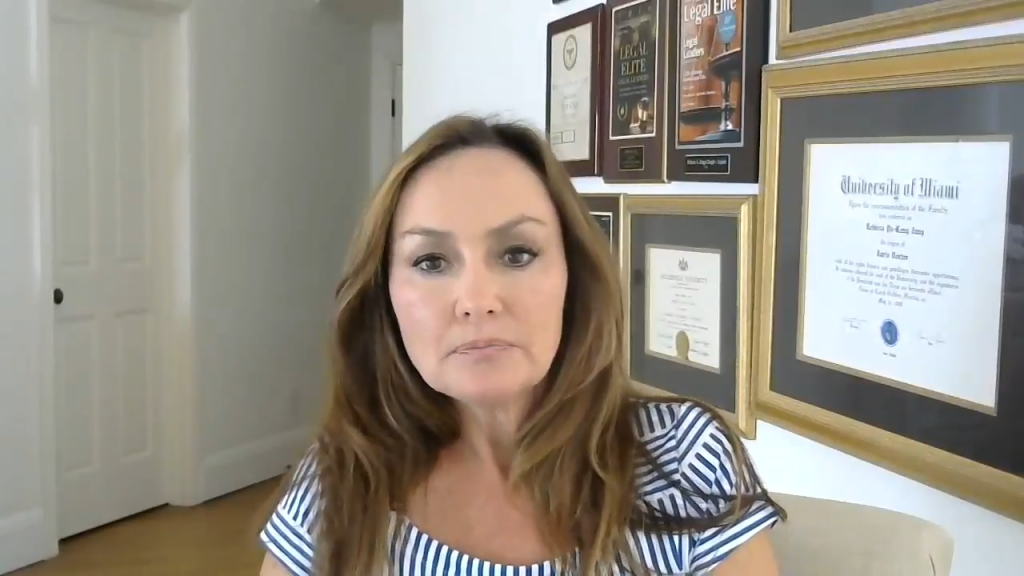“Community property — property acquired during the marriage — is to be divided equally.” Anything Jim and I had owned separately before the marriage was still his and his. But Zoe was not “stuff.” She wasn’t a daughter, either.

Zoe was a Jack Russell terrier, then 14 years old, who had entered my life with Jim.Start of the article: “I have some good news,” my divorce lawyer told me during our second consultation in her downtown Durham, N.C., office. Before uncovering it, she posed an inquiry: “Are you ready to pay $16,000 for Zoe?” In our first gathering I’d disclosed to the legal counselor, Milan Pham, that I didn’t generally think about our “stuff.” “North Carolina state law is clear,” she let me know. “Pets are dealt with precisely like TVs, furniture and vehicles,” Ms. Pham clarified, implying that Zoe had a place with Jim like any of different resources he had brought into the marriage. (We’d been hitched for a long time, together for 13 altogether.) No issue that we’d shared the expense of her upkeep throughout our marriage — normal vet visits, natural food and treats (counting her day by day broccoli fix), the custodian, hound walkers, even a canine therapist — lawfully, Zoe was Jim’s. I’d requested joint guardianship. Separating our locale property had been generally direct. I got the cowhide seat from Design Within Reach; Jim took the Cuisinart espresso producer, burr processor included.

He took the grill; I got the TV. I didn’t get the Tiffany cobalt jar I’d sought after (a blessing from our go between), which I for the most part needed on the grounds that it tied down my blue glass assortment). Jim appeared to be sufficiently glad to let me have the remainder of our wedding presents, just as each blessing I’d at any point given him, including a photograph book titled, “I, Jack Russell.” But not Zoe. The stalemate was wealthy in incongruity, since Zoe and Max (the silly cocker spaniel I had brought into our relationship) had been the best test to us as a team. We were a mixed family that was not blending admirably. Right off the bat in our relationship Zoe seriously bit Max, tearing his fragile living creature and requiring a crisis outing to the vet. I told Jim: “A canine that chomps once will nibble once more. We need to dispose of her.” Understandably, that didn’t agree with him. I had some skin in this game, as well, since she drew blood from me also. (Once, I was almost certain I’d lost an areola. Fortunately, I wasn’t right.) When we began couples treatment, our canines were Topic A.

Also, it wasn’t well before we took the two mutts to a canine “contract” with a doctorate who — ineffectively — attempted to fix both two-legged and four-legged connections. It appeared to be no measure of affection could help Zoe conquer her tendency. In any case, throughout the years, particularly after Max passed on, I developed to acknowledge her, character imperfections what not. We worked it out in manners that Jim and I proved unable. I came to acknowledge how she would wake up cheerful consistently, prepared to welcome the world with her dancing walk. I came to perceive how waterfalls close blinded her and incontinence disgraced her. How might I be able to not cherish her? How would I be able to simply discount her like the blue vase?I had approached Jim for joint authority for two reasons.

I’d become profoundly connected to Zoe. Yet, I likewise trusted that the sharing of obligations would assist us with figuring out how to remain in one another’s lives. Maybe Zoe, who had brought us so much conjugal conflict, would give a suffering tie. Jim’s answer was “no.” He clarified to me that he comprehended the law, messaging, “My legal counselor did exhort me that Zoe is viewed as close to home property and as such it is my choice to make about her future.” Then, to ensure I comprehended, he included, “You can’t generally have what you need.” What about what Zoe needed? The law couldn’t care less. In partitioning conjugal property, judges don’t consider where your TV needs to live, and they’ve been comparatively unsentimental about what may be to the greatest advantage of “friend creatures.” Until as of late, that is.

Three states — Illinois, Alaska and, compelling this year, California — have altered their family code to treat pets uniquely in contrast to different kinds of conjugal resources. “There is nothing in rule guiding adjudicators to treat a pet uniquely in contrast to some other sort of property we own,” a California assemblyman, Bill Quirk, noted in 2018 while supporting the adjustment in law. “Notwithstanding, as a pleased parent of a saved pooch, I realize that proprietors see their pets as something other than property. They are a piece of our family, and their consideration should be a thought during divorce procedures.” Thanks to Mr. Eccentricity, since January, California judges have been allowed to consider the prosperity of the creature, just as who gave its consideration, in working out authority understandings. Which is the manner by which I came to be sitting in my legal advisor’s office that day, engaging paying $16,000 for joint care. Ms. Pham said “North Carolina may not be a long ways behind” viewing the pets-as-property debate. Meanwhile, however, her lawful group had inspected other state laws and thought of a dollar add up to attempt to initiate Jim to share care. “It will positively stand out enough to be noticed,” she said.

“For sure, it would,” I thought. To me Zoe was extremely valuable, however all things being equal, $16,000 appeared to be exorbitant for a 11-pound geriatric dread ($1,455 a pound!). Grief stricken, I consented to the partition arrangement that recorded Zoe between “electric salt and pepper shaker” and “red bowl” on the stock of Jim’s property. At that point she was gone, living with Jim in another town 65 miles away. Half a month later came another email from Jim: “I am not recommending I need to do this, however would you be keen on Zoe full time?” Without overlooking anything, I answered, “yes,” which drove him to uncover that his new townhouse wasn’t hound well disposed. In spite of the fact that our lawful understanding was marked and recorded, I took full authority of Zoe. I comprehended the ramifications of my “win” when Jim composed again, proclaiming that he wouldn’t pay for any of Zoe’s consideration “since I won’t ever observe her again.”

Or me, as it’s turned out up until this point. I see myself as fortunate to go through my days with Zoe now. Following quite a while of thinking about my folks, who both passed on inside months of my and Jim’s lawful division, I required that little “terrier-ist” like never before. Grinning more than growling, and now fourteen days short of 17, she plays a day by day round of “kill the squirrel,” where she pursues those hotshot rodents in the front yard with each desire for catch. Up until now, the squirrels are winning. Zoe and I are triumphant in our own particular manner — we got what was best for us, no $16,000 installment required. Not very far in the past I talked with Cristina Stella, an attorney with the Animal Legal Defense Fund. In my separation I’d belatedly taken in the significance of having a prenup, which Jim and I had skipped.

“I don’t have a clue whether you’ve at any point heard the term ‘petnup’,” Ms. Stella stated, “however it’s the most ideal approach to maintain a strategic distance from guardianship debates when the relationship breaks down.” Options incorporate sole care, joint authority and even pet help (like kid support).Divorce is not for the faint of heart, whether human or canine. I now know how to protect my rights and any four-legged “stuff,” should I marry again. How to protect my heart — well, that’s another matter. Source: NY Times. Another story in video:
